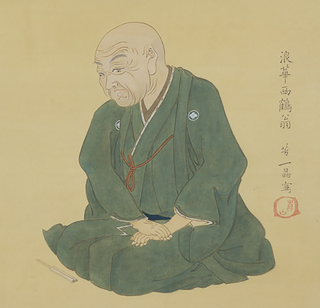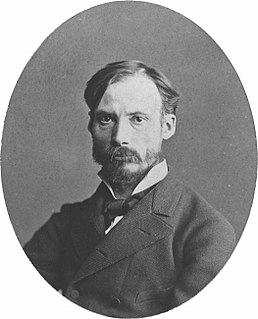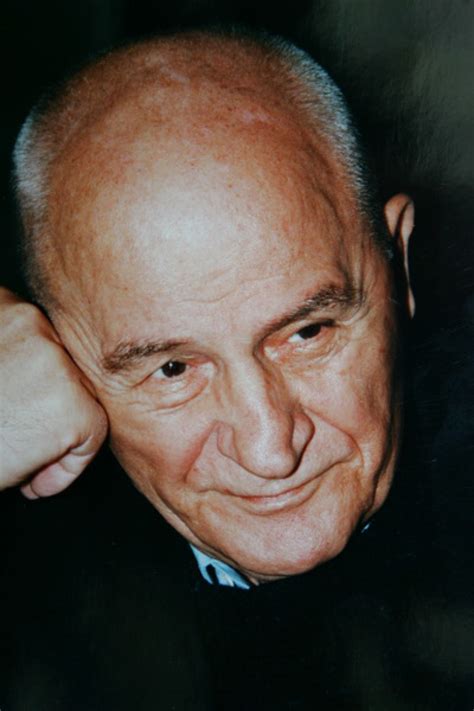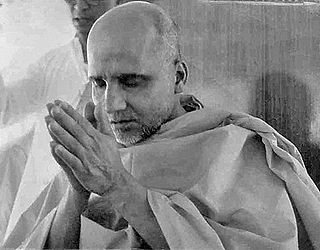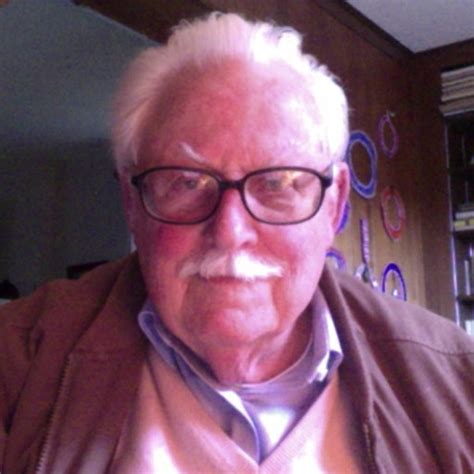Top 103 Malady Quotes & Sayings - Page 2
Explore popular Malady quotes.
Last updated on November 18, 2024.
Every man on earth is sick with the fever of sin, with the blindness of sin and is overcome with its fury. As sins consist mostly of malice and pride, it is necessary to treat everyone who suffers from the malady of sin with kindness and love. This is an important truth, which we often forget. Very often we act in the opposite manner: we add malice to malice by our anger, we oppose pride with pride. Thus, evil grows within us and does not decrease; it is not cured - rather it spreads
From the height of their disillusionment they look down upon those whom they despise as simple souls. For my part I have no sympathy with this outlook. All disenchantment is to me a malady, which, it is true, certain circumstances may render inevitable, but which none the less, when it occurs, is to be cured as soon as possible, not to be regarded as a higher form of wisdom.
Let us say in passing that since (philosophical) remedies are often worse than the malady, our age, in order to be cured of the Plato sickness, has swallowed such doses of a relativist, vaguely skeptical, lightly spiritualist and insipidly moralist medicine, that it is in the process of gently dying, in the small bed of its supposed democratic comfort.
I'm still afflicted with the malady of research. I don't like what I do, and I paint it out, and paint it out again. I hope this mania will come to an end... I'm like a child at school. The white page must always be evenly written and slap! bang! and there's a blot! I'm still blotting and I'm forty years old.
There is, then, no danger in the circumstances that anti-semitism will disappear, for it is the Jews themselves who add fuel to its flames and see that it is kept well stoked. Before the opposition to it can disappear, the malady itself must disappear. And from that point of view, you can rely on the Jews: as long as they survive, anti-semitism will never fade. (13th February 1945)
These dreams reminded me that, since I wished some day to become a writer, it was high time to decide what sort of books I was going to write. But as soon as I asked myself the question, and tried to discover some subject to which I could impart a philosophical significance of infinite value, my mind would stop like a clock, my consciousness would be faced with a blank, I would feel either that I was wholly devoid of talent or perhaps that some malady of the brain was hindering its development.
Snowden is not the disease. We don't have traitors or whistleblowers blooming all over because they are some sort of malady. The disease is war. We've been at war now and with no end in sight for over a dozen years, the longest in our history. War breeds tyranny. War breeds people who want to prosecute and persecute those who reveal that tyranny. So what we have is the government becoming more draconian - clearly understandable. It always does in a period of war. And as it becomes more draconian, more and more whistleblowers coming.
The occasional nomination of a Todd Akin or Christine O'Donnell or Sharron Angle is a problem for the GOP. But it's really just a symptom of a much more serious malady: an environment on the right that demands and rewards an ideal of 'purity' that has little appeal outside of the conservative movement.
Are we willing to risk being misunderstood and maligned in order that truth might be told and men might be saved? Identifying a malady and explaining its seriousness are always the first steps to finding a cure... God has ordained that men come to conviction of sin, repentance, and saving faith through preaching. Yet how can the [Holy] Spirit use our preaching if we are not willing to expose sin or call men to repentance?
There are dull and bright, sacred and profane, coarse and fine egotists. It is a disease that, like influenza, falls on all constitutions. In the distemper known to physicians as chorea, the patient sometimes turns round, and continues to spin slowly in one spot. Is egotism a metaphysical varioloid of this malady?
The thing is that the ego cannot cure itself of its own malady of egoism; it's already infected by the disease itself. And that is why it is necessary to go to a guru who knows God and by absorbing his consciousness into yourself, you discover that you aren't this ego. You cross that abyss and you find that you are infinite.
Surely the mischief of hypocrisy can never be enough inveighed against. When religion is in request, it is the chief malady of the church, and numbers die of it; though because it is a subtle and inward evil, it be little perceived. It is to be feared there are many sick of it, that look well and comely in God's outward worship, and they may pass well in good weather, in times of peace; but days of adversity are days of trial.
Infatuation is one of those slightly comic illnesses which are at once so undignified and so painful that a nice-minded world does its best to ignore their existence altogether, referring to them only under provocation and then with apology, but, like its more material brother, this boil on the neck of the spirit can hardly be forgotten either by the sufferer or anyone else in his vicinity. The malady is ludicrous, sad, excruciating and, above all, instantly diagnosable.
A vice sanctioned by the general opinion is merely a vice. The evil terminates in itself. A vice condemned by the general opinion produces a pernicious effect on the whole character. The former is a local malady; the latter, constitutional taint. When the reputation of the offender is lost, he too often flings the remainder of his virtue after it in despair.
Religion is not a matter of God, church, holy cause, etc. These are but accessories. The source of religious preoccupation is in the self, or rather the rejection of the self. Dedication in the obverse side of self-rejection. Man alone is a religious animal because, as Montaigne points out, it is a malady confined to man, and not seen in any other creature, to hate and despise ourselves.
The strange, wonderful stories of Doctor Olaf van Schuler's Brain introduce us to the tremendously gifted Kirsten Menger-Anderson, a writer whose subject is nothing less than the diagnosis and cure of the human malady. We follow twelve generations of New York City's Steenwycks family through their forays into phrenology, mesmerism, radium therapy and similar misadventures, a historically rich narrative that Menger-Anderson delivers in striking, elegant prose and with a sure eye for detail. This is a remarkable debut by a writer to watch.
Your attitude is more important than the events happening around you. Artists develop a syndrome taught in art schools. It is a malady titled, 'Artistic Temperament'... rudeness, excuses, slovenliness, laziness, clutter, addictions, non-commercial attitudes, un-professionalism... and a good reason for failure.
O Prosperina,
For the flowers now that, frighted, thou let'st fall
From Dis's wagon; daffodils,
That come before the swallow dares, and take
The winds of March with beauty; violets dim,
But sweeter than the lids of Juno's eyes
Or Cytherea's breath; pale primroses,
That die unmarried, ere they can behold
Bright Phoebus in his strength--a malady
Most incident to maids; bold oxlips and
The crown imperial; lilies of all kinds,
The flower-de-luce being one.
Pain or not, I would most likely walk around in a suicidal reverie the rest of my life, never actually doing anything about it. Was there a psychological term for that? Was there a disease that involved an intense desire to die, but no will to go through with it? Couldn't talk and thoughts of suicide be considered a whole malady of their own, a special subcategory of depression in which the loss of a will to live has not quite been displaced by a determination to die?
Married women vote Republican; single women vote Democratic. That's why liberals promote policies to break up families. Every social malady is a victory for the left. A couple gets divorced and liberals say, "Yay! Another Democratic voter!" A child is born out of wedlock and liberals say, "Yay! Another Democratic voter!" A person gets addicted to drugs and liberals say, "Yay! Another Democratic voter!"
What man needs is not philosophy or religion in the academic or formalistic sense of the term, but ability to think rightly. The malady of the age is not absence of philosophy or even irreligion but wrong thinking and a vanity which passes for knowledge. Though it is difficult to define right thinking, it cannot be denied that it is the goal of the aspirations of everyone.
When we do not know the truth of a thing, it is good that there should exist a common error which determines the mind of man, as, for example, the moon, to which is attributed the change of seasons, the progress of diseases, etc. For the chief malady of man is a restless curiosity about things which he cannot understand; and it is not so bad for him to be in error as to be curious to no purpose.
Prayer is a salve for every sore, a remedy for every malady; and when we are afflicted with thorns in the flesh, we should give ourselves to prayer. If an answer be not given to the first prayer, nor to the second, we are to continue praying. Troubles are sent to teach us to pray; and are continued, to teach us to continue instant in prayer.
Whatever the scientists may come up with, writers and artists will continue to portray altered mental states, simply because few aspects of our nature fascinate people so much. The so-called mad person will always represent a possible future for every member of the audience - who knows when such a malady may strike?
it is only on posters and in advertisement pages that Americans have those chubby cheeks, expanding smiles, smooth looks, and faces flushed with well-being. In fact, almost all are at odds with themselves; drink offers a remedy for this inner malady of which boredom is the most usual sign: as drinking is accepted by society, it does not appear as a sign of their [Americans'] inability to adapt themselves; it is rather the adapted form of inadaptability.
When you go to the hospital, there are so many medicines. You do not have to take all the medicines; just the ones that are needed for your malady. You do not have to eat all the medicines. Whatever kind of spiritual practices you sincerely want to do, you just take that medicine; do not collect all the other things.
Gary Greenberg is a thoughtful comedian and a cranky philosopher and a humble pest of a reporter, equal parts Woody Allen, Kierkegaard, and Columbo. The Book of Woe is a profound, and profoundly entertaining, riff on malady, power, and truth. This book is for those of us (i.e. all of us) who've ever wondered what it means, and what's at stake, when we try to distinguish the suffering of the ill from the suffering of the human.
I suffer the anthropological malady diagnosed by Le vi- Strauss inTristes tropiques: I find it much more difficult to suspend value judgments about the society in which I normally reside than I do abroad. It takes physical and cultural distance to gain moral detachment and political noncommitment. Relativism implies a solid measure of indifference.
There are few of us who have not sometimes wakened before dawn, either after one of those dreamless nights that make one almost enamoured of death, or one of those nights of horror and misshapen joy, when through the chambers of the brain sweep phantoms more terrible than reality itself, and instinct with that vivid life that lurks in all grotesques, and that lends to Gothic art its enduring vitality, this art being, one might fancy, especially the art of those whose minds have been troubled with the malady of reverie.



